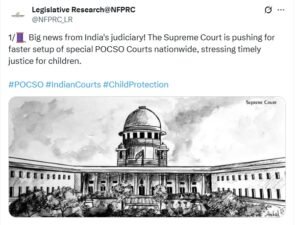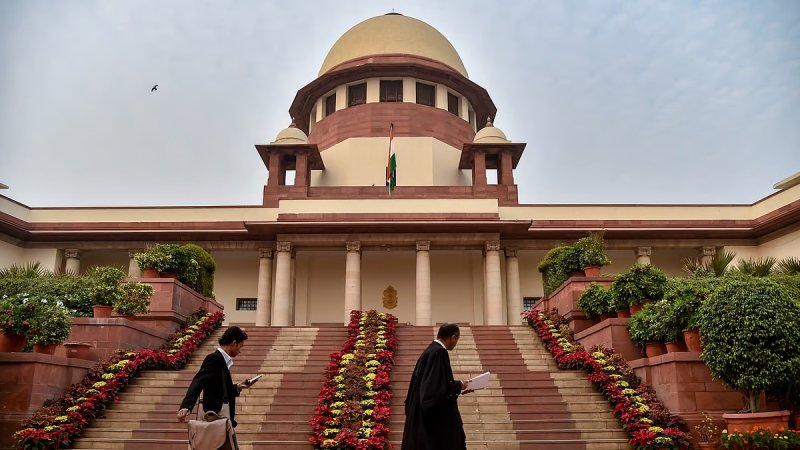The Supreme Court has ruled that a man found guilty under the Protection of Children from Sexual Offences (POCSO) Act will not receive a sentence, referring to the exceptional circumstances of the situation. The ruling was issued by a panel including Justice Abhay S Oka and Justice Ujjal Bhuyan, using the Court’s authority under Article 142 of the Constitution.

The accused had married the girl when she became adult
The individual, aged 24 at the time of crime, had been found guilty of having a sexual relationship with a minor girl. He subsequently wed her once she attained adulthood. The pair currently resides together with their child.
A panel of experts, comprising a clinical psychologist and a social scientist, was formed to assess the victim’s current situation and psychological health. Their discoveries were crucial in the Court’s ultimate ruling.
ALSO READ: IMF defends bailout package to Pakistan days after India’s request
“The society judged her, the legal system failed her, and her own family abandoned her,” the Supreme Court remarked.
In its decision, the Court mentioned that the victim, now grown up, did not consider the incident to be criminal. “Although the incident is regarded as a crime legally, the victim did not perceive it as such. It wasn’t the legal offense that inflicted trauma on her, but the aftermath that ensued.” The Court remarked that what she had to confront as a result included the police, the legal system, and an ongoing struggle to protect the accused from repercussions.
‘Extraordinary circumstances of the case’
The Court determined that the extraordinary circumstances, such as the victim’s emotional bond with the accused and their present family situation, justified the use of authority under Article 142 to achieve “complete justice.”
Calcutta High Court’s controversial observations
The case initially arrived at the Supreme Court following contentious remarks from the Calcutta High Court in its 2023 ruling that cleared the man. The High Court had annulled his 20-year sentence, delivering broad remarks regarding young girls and their assumed moral responsibilities.
ALSO READ: Special NIA Court in Churachandpur to Handle Manipur Ethnic Violence Cases
The High Court stated that a teenage girl must “control sexual urges,” asserting that society views her as the “loser” in these situations. These comments sparked significant backlash. The Supreme Court acknowledged the case, intending to examine the acquittal as well as respond to the High Court’s remarks.
On August 20, 2024, the Supreme Court overturned the judgment of the Calcutta High Court and restored the man’s conviction.
Upon restoring the conviction, the Court did not move forward without delay to impose a sentence. Rather, it initiated a fact-finding procedure to assess the victim’s current circumstances and her opinions regarding the case. The government of West Bengal was instructed to establish an expert panel, comprising individuals from organizations such as NIMHANS or TISS, along with a child welfare officer, to oversee the investigation.














